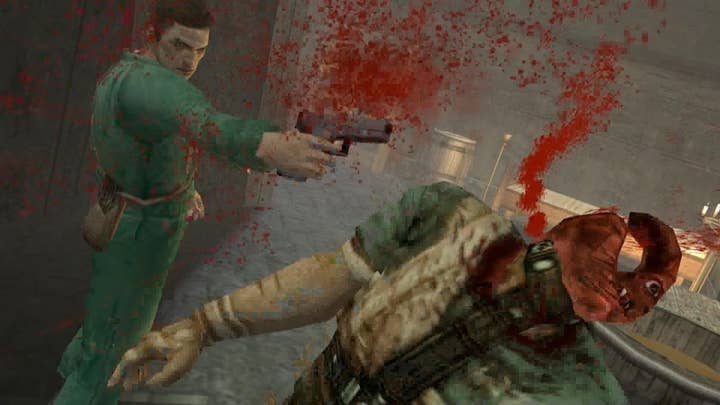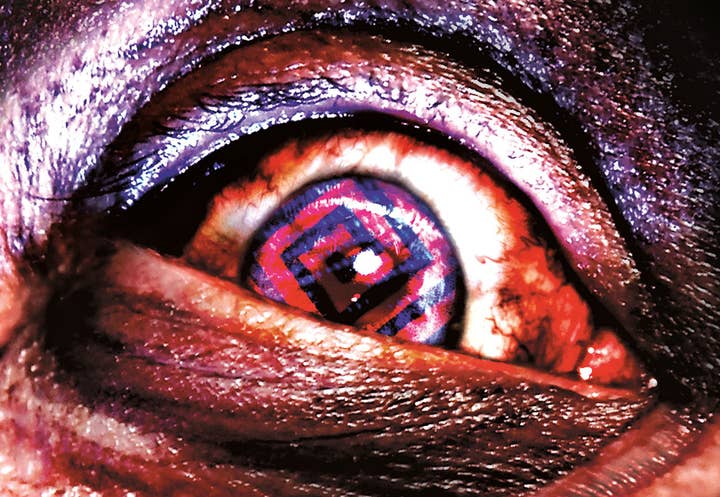Trump's video game scapegoating feels downright nostalgic | Opinion
In an era when the industry's real problems are internal and divisive, a flashback to being united against an external foe feels deceptively good
Everything old is new again, at least for a while. Right-wing politicians are blaming games for real-life violence, the industry and its fans are rallying to defend the medium, and I had to check the mirror to see if the white hairs are all still there before I could be certain we hadn't all been time-skipped back to the early 2000s. Games are being scapegoated for awful, senseless and tragic acts of violence, and hey look, we're getting the band back together.
It's an uncharitable thought -- albeit far from the least charitable thought I've had about the ESA in recent years -- but Donald Trump's half-cocked attempt to shovel responsibility for the recent mass shootings in El Paso and Dayton onto video game violence couldn't have come at a better time for the embattled organization if they'd slipped round the back of the West Wing to personally slip him a cheeky $50. The ESA had a dramatically awful week, having managed to leak the personal details of thousands of games media people in an act of blinding and potentially immensely damaging incompetence -- which feels for all the world like a punctuation mark at the end of a pretty awful decade or so, really.
Then lo and behold, Donald Trump is at the podium and all of a sudden the ESA gets a chance to wheel out its Greatest Hits, Volume 1, 2 and 3. The battle against censorship and scapegoating, really the only thing it has ever actually been good at, roared back to life for a comeback tour.
"Trump's attempted scapegoating harks back to a time when the industry may have felt embattled, but at least it felt somewhat united"
It's not just the ESA, either. It feels like every time a political leader trying to deflect responsibility or a newspaper desperate for a silly-season headline drags out the old Violent Video Games trope, the whole industry almost heaves a collective sigh of relief. Solid ground, at last! Here's an opponent we can all rally against, an external foe launching an ill-informed and ill-advised broadside against the medium we all love. Here's an argument that lets us roll out talking points that unite the industry, the media and game fans themselves behind one banner.
It's just like the mistily-recalled Good Old Days when it was game creators and gamers against a rogue's gallery of fuddy-duddy, pearl-clutching old politicians, fame-hungry lawyers of immensely dubious character, and sniffy newspaper editorials that often couldn't even get the names of the games they were criticising right.
It is understandable why that's appealing. Leaving aside the tragic and sickening nature of the events that set this whole affair in motion, Trump's attempted drive-by scapegoating -- and eager adoption of his talking points by the shameless chorus line of American right-wing media, who must have left their full-throated defences of free speech and expression in the pocket of their other trousers this week -- really does hark back to a time when the industry may have felt embattled, but at least it felt somewhat united.

Today's big issues in games aren't remotely so unifying; from the threats and harassment of the culture wars that still poison the industry's discourse and force women and minorities to keep their heads below the parapet, to the altogether more divisive and difficult arguments over loot boxes and monetisation that drive all sorts of wedges between different segments of the industry, the media and consumers, today's disputes are more internal, more divisive and, often, more bitter and more damaging.
"Today's disputes are more internal, more divisive and, often, more bitter and more damaging"
The pantomime villainy of the likes of Jack Thompson, Leland Yee or the UK's own Keith Vaz does seem quite nostalgic compared to the contemporary reality of seeing someone's inbox fill up with death threats and graphic descriptions of rape for daring to, well, exist; or seeing the industry twist itself into logical knots in an attempt to justify hawking gambling-like monetization schemes at kids.
In the midst of all this division, there's no sense of a common purpose or a threat that actually unites games. Really, the current attempts at scapegoating over gun violence isn't a common purpose or threat either; for all the haste with which a flurry of statements have been issued and editorials dashed off, everyone knows this is just a reenactment, not a real battle. The real battle is over. The real battle ended years ago, when video games were ruled protected speech by the US Supreme Court, the only institution that could have seriously threatened that status in a meaningful way. That protection, which recent changes to the Supreme Court bench seem likely to strengthen rather than weaken, makes this week's brief reignition of the debate into little more than the world's least demanded boyband reunion.
This whole flap, in other words, will be done and gone within a week. The news cycle will move on, and the games industry will have to turn back from reminiscing over glory days and return to confronting (or in all too many cases pointedly ignoring) the more complex, difficult problems and divisions we face right now. The reality is that games are a big part of mass-market culture; from Fortnite to Pokemon Go, from Mario to Skyrim, from Halo to Candy Crush, games are woven through the cultural DNA of entire generations in a way that essentially means the medium doesn't have any real external enemies, any natural predators, any more.
It's not for want of trying. Trade bodies and publishers have done their best to invent new rhetorical bogeyman for us to rally against, but acting like EU investigations of loot boxes are the modern equivalent of the one-time struggle against would-be censors comes across as self-serving idiocy on the best of days. The less said about those who reckon that Secret Feminists are quietly accomplishing what conservative political and legal establishments on both sides of the Atlantic utterly failed to do for decades, meanwhile, the better.
Trump's rhetorical flail at video games, thrown out as a sop to Fox News' audience of constantly terrified and furious geriatrics, is a red herring. This debate was dead and buried long ago. We have tougher problems with less straightforward solutions to address now; those in the industry leaping so excitedly to re-engage are showing off only their nostalgia -- and, perhaps, their age.









